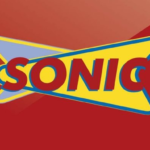In today’s competitive gaming industry, choosing the right 2D game development company can be the difference between a successful project and a failed one. With mobile gaming on the rise and a growing demand for indie and retro-style games, the need for skilled 2D game development companies has never been higher. However, not all studios are created equal, and businesses looking to create a game need to carefully evaluate their options to find the perfect match for their project.
Evaluating a 2D game development company involves more than just looking at portfolios. You must also consider factors such as the company’s technical capabilities, communication skills, cost, and experience in similar projects. This guide will help you understand the key criteria to consider when selecting the right 2D game development company for your specific needs.
The Importance of Choosing the Right Partner
Whether you’re developing a game for mobile, PC, or console, finding a 2D game development company that understands your vision is crucial. Working with the wrong studio can lead to poor communication, missed deadlines, and, ultimately, a subpar game. The right company will offer more than just technical expertise; they will provide strategic input, enhance your concept with creative ideas, and help bring your project to life efficiently.
Let’s take a closer look at how you can thoroughly evaluate a 2D game development company.
1. Experience and Expertise in 2D Game Development
One of the most critical factors to consider is the company’s experience in developing 2D games. While many companies may claim to have game development experience, 2D games require specific skills that differ from 3D or VR projects. Look for a 2D game development company with a proven track record in creating high-quality 2D games across multiple platforms.
- Portfolio Review: Evaluate the company’s portfolio. Do they have a diverse range of successful 2D games? Pay close attention to the complexity of the games, art style, and overall execution. Look for titles that are similar to your vision.
- Industry Knowledge: Ask about their experience working within your target industry. For instance, if you’re developing a 2D platformer for mobile, does the company have experience in this genre and platform? A specialized 2D game development company with experience in your target market will better understand the nuances of your project.
2. Technical Capabilities and Tools
The technology used in 2D game development can significantly impact the quality of the final product. Make sure the 2D game development company you’re considering is well-versed in the latest game engines, development tools, and animation techniques.
- Game Engines: Popular 2D game development engines like Unity and Godot are favored for their versatility and features. Ask the company what game engines they use and why. A skilled 2D game development company should be proficient with industry-standard tools.
- Programming Languages: Different platforms may require different coding languages. Make sure the developers have expertise in relevant languages such as C#, JavaScript, or Python, depending on the requirements of your project.
- Animation and Art Tools: Since 2D games rely heavily on visual art and animations, the company should be skilled in tools like Adobe Photoshop, Spine, and other specialized software that allows for detailed sprite creation and smooth animation.
3. Workflow and Communication
Clear and transparent communication is essential for the success of any game development project. A structured workflow ensures that each stage of the game development process—from pre-production to post-launch support—is executed effectively.
- Development Workflow: Ask about the company’s workflow and project management techniques. A well-organized 2D game development company will have a clear development roadmap with milestones, timelines, and deliverables. Agile or Scrum methodologies are often preferred for game development as they offer flexibility and continuous feedback loops.
- Client Collaboration: Communication between the development team and stakeholders must be seamless. Ask how often they provide progress updates and how they handle feedback. The best 2D game development companies offer regular check-ins, demo builds, and are open to revisions based on client input.
- Issue Resolution: In any development process, issues will arise. Ask how they handle problem-solving and whether they have a process for dealing with unexpected challenges.
4. Budget and Pricing Structure
While cost is always a factor in any business decision, it shouldn’t be the sole criterion. Instead, aim for value. The cheapest 2D game development company may cut corners, while the most expensive one might not provide the best return on investment.
- Cost Transparency: Ensure the company provides a detailed breakdown of costs, including design, programming, testing, and post-launch support. A transparent 2D game development company will help you avoid unexpected costs during the project.
- Value for Money: Look at what is included in their pricing. Does it include post-launch support or ongoing updates? Be wary of companies that offer low initial costs but charge high fees for every additional feature or service.
- Comparing Quotes: Don’t hesitate to request quotes from multiple 2D game development companies. This will give you a better idea of what different companies offer and help you choose the best fit for your budget.
5. Post-Launch Support and Updates
Game development doesn’t end with the launch. The gaming market is competitive, and your game will require regular updates, patches, and potentially new content to keep players engaged. A 2D game development company that offers post-launch support can be a valuable long-term partner.
- Ongoing Support: Ask if the company provides post-launch services such as bug fixes, performance optimization, and content updates. Regular maintenance ensures your game remains functional and relevant long after launch.
- Scalability and Expansion: If your game performs well, you may want to expand it with additional levels, characters, or downloadable content (DLC). Choose a 2D game development company that can scale the project if needed.
6. Reputation and Client Testimonials
A 2D game development company’s reputation can tell you a lot about their reliability and quality of work. Look for testimonials and reviews from previous clients to get a sense of the company’s track record.
- Client Reviews: Search for reviews on third-party websites or reach out to past clients directly for feedback. What was their experience like? Were there any challenges working with the company? Were deadlines met?
- Industry Recognition: Has the company won any awards or received recognition in the gaming community? Leading 2D game development companies often have accolades that reflect their excellence and commitment to quality.
Conclusion
Selecting the right 2D game development company is a crucial step in bringing your vision to life. A thorough evaluation of their experience, technical capabilities, communication, and post-launch support will ensure you make an informed decision. By focusing on these key factors, you can partner with a 2D game development company that not only meets your needs but also elevates your project to the next level.
With the right partner, you can turn your game concept into a fully functional, engaging product that stands out in the highly competitive gaming market.







